Submitting a medical claim form can often feel overwhelming, but it doesn't have to be! Understanding the key components of a well-structured letter can make this process smooth and stress-free. Whether you're navigating insurance requirements or detailing your medical expenses, a clear and concise letter is essential for successful claims processing. Curious to learn more about crafting the perfect letter for your medical claim?
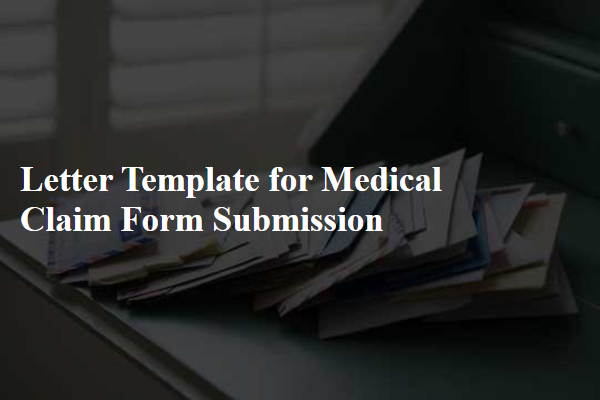
Patient's Full Name and Contact Information
The submission of a medical claim form requires detailed patient information for processing. Patient's Full Name, typically formatted as First Name, Middle Initial, Last Name, must align with identification documents. Contact Information, including a valid email address and phone number, ensures timely communication regarding claim status. Accurate entries minimize processing delays, ensuring benefits are efficiently disbursed. Dates of service, medical provider's details, diagnosis codes, and procedure codes are essential for comprehensive evaluation by insurance entities. Correct information submission adheres to the guidelines established by medical insurers, promoting swift resolutions.
Policy and Claim Number
Medical claim submissions require attention to detail to ensure efficient processing. The policy number, a unique identifier assigned to each insured individual, must be clearly indicated and associated with the claim number, which is specific to the particular medical event or treatment received. These identifiers streamline the claims process and facilitate communication between the healthcare provider, the insured individual, and the insurance company. Accurate submission reduces downtime in claim resolution, typically occurring within 30 days post-receipt of the documentation. Compliance with these details safeguards against potential delays or denials associated with incorrect or incomplete data.
Description of Medical Service and Diagnosis
Medical claim forms for insurance reimbursement often require detailed descriptions of services provided, including specific diagnoses. For instance, a patient diagnosed with type 2 diabetes (ICD-10 code E11) undergoing a comprehensive metabolic panel (CPT code 80053) will necessitate a detailed report illustrating lab tests conducted on September 15, 2023, at Springfield Medical Center (facility name) that assesses glucose levels, electrolyte balance, and kidney function. Additional treatments such as diabetes education sessions (CPT code 98960) on October 1, 2023, mentioning the patient's engagement in lifestyle modification strategies, can further substantiate the medical necessity and enhance the claim's validity. Documentation should include dates, relevant CPT and ICD-10 codes, and the healthcare provider's signature.
Billing Codes and Itemized Costs
Medical claim submissions require accurate billing codes and itemized costs for effective processing. Billing codes, such as ICD-10 (International Classification of Diseases, 10th Revision) and CPT (Current Procedural Terminology), ensure precise categorization of diagnoses and treatments received. Itemized costs, including individual charges for each service rendered like consultations, tests, and imaging (e.g., MRI - Magnetic Resonance Imaging or X-ray), provide clarity on overall expenses incurred during the medical treatment. Accurate submission of this information is crucial for reimbursement from insurance companies and compliance with healthcare regulations.
Attached Supporting Documents and Receipts
Submitting a medical claim form requires thorough documentation, including supporting documents and receipts. Essential records encompass itemized bills (detailing individual services such as consultations, procedures, or tests), insurance policy numbers (for verification of coverage), and medical reports (from healthcare providers outlining the diagnosis and treatment rendered). It is crucial to include proof of payment receipts (showing amounts paid for services) alongside referral letters (if applicable) to substantiate the necessity of treatment. Accurate completion of the claim form, along with these detailed records, ensures a streamlined review process by insurance companies, facilitating timely reimbursement for medical expenses incurred.
Letter Template For Medical Claim Form Submission Samples
Letter template of medical claim form submission for outpatient services.
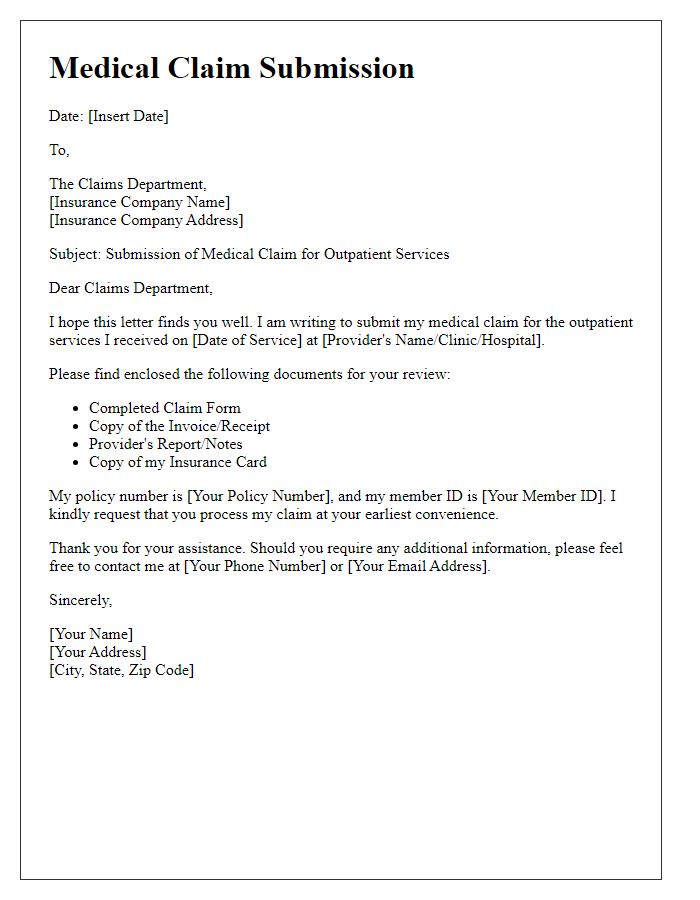
Letter template of medical claim form submission for hospitalization expenses.
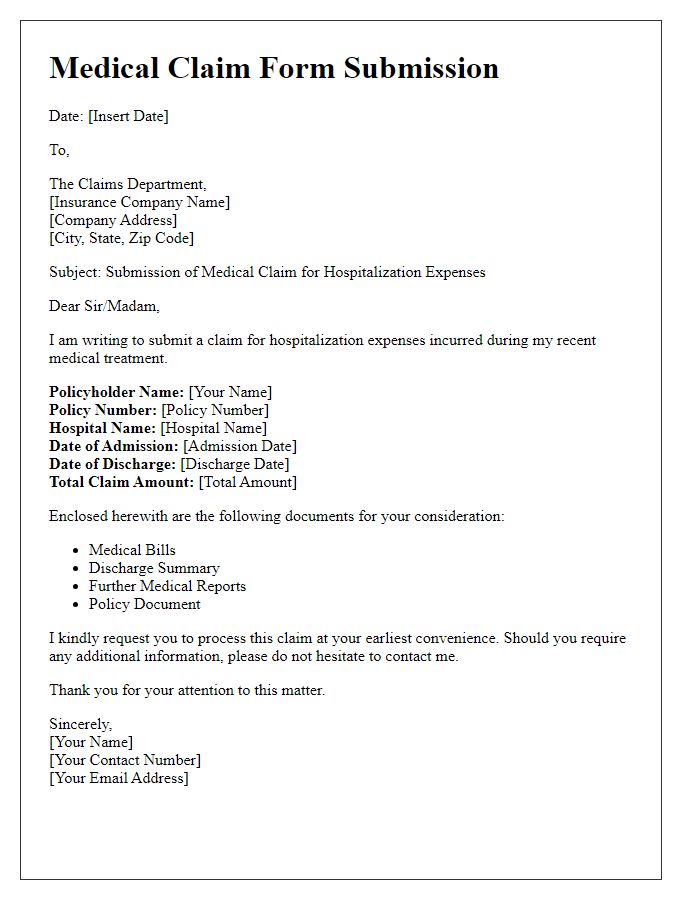
Letter template of medical claim form submission for prescription reimbursements.
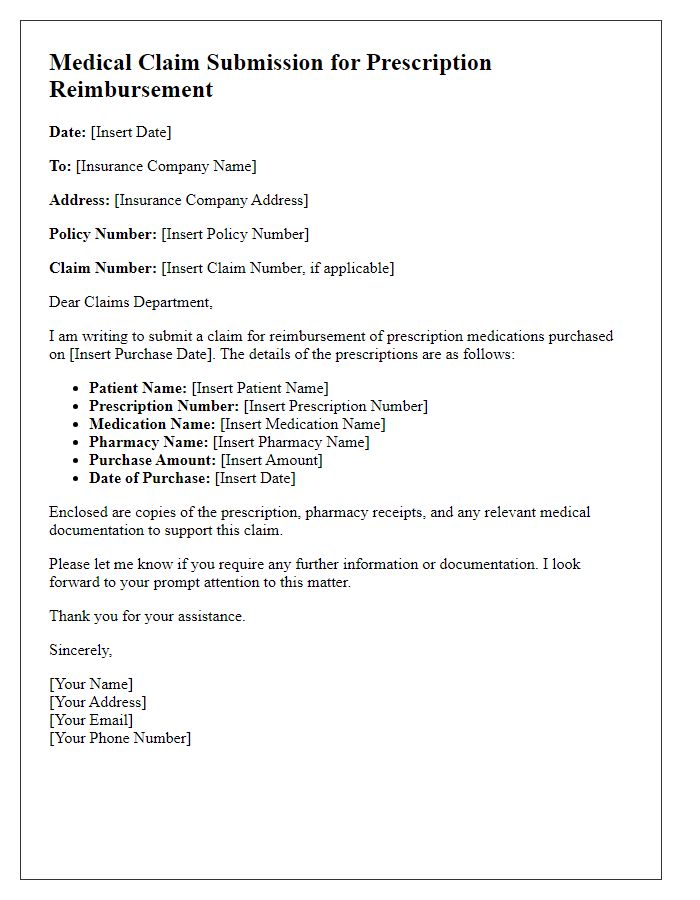
Letter template of medical claim form submission for emergency room visits.
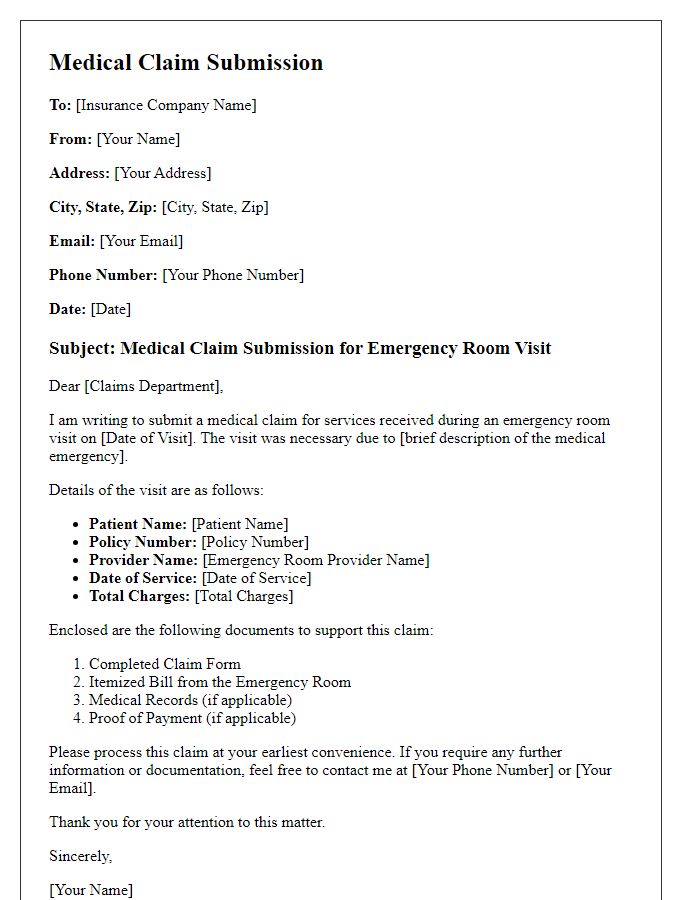
Letter template of medical claim form submission for maternity-related claims.
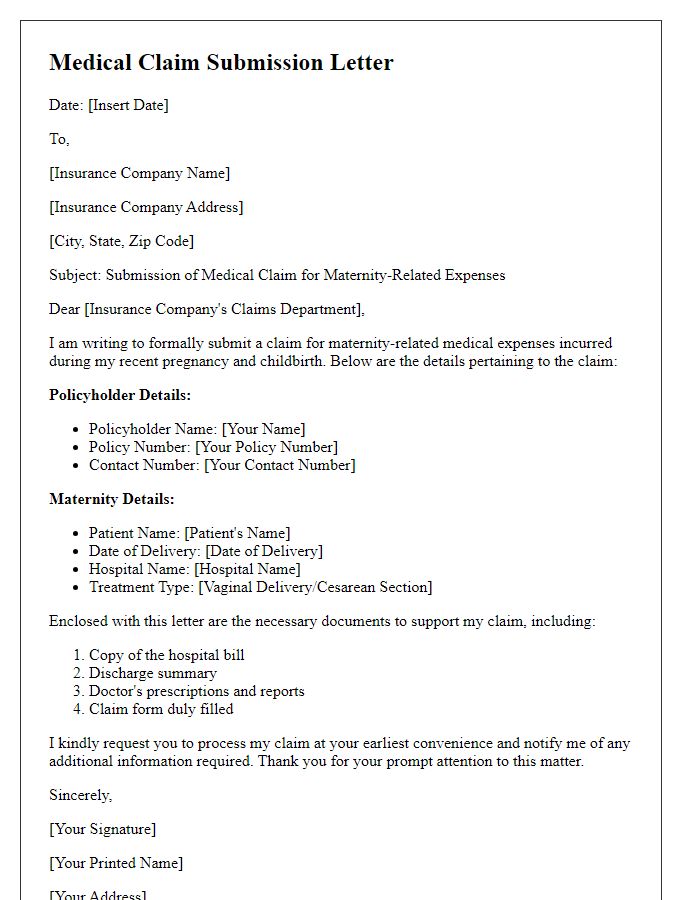
Letter template of medical claim form submission for vision care expenses.
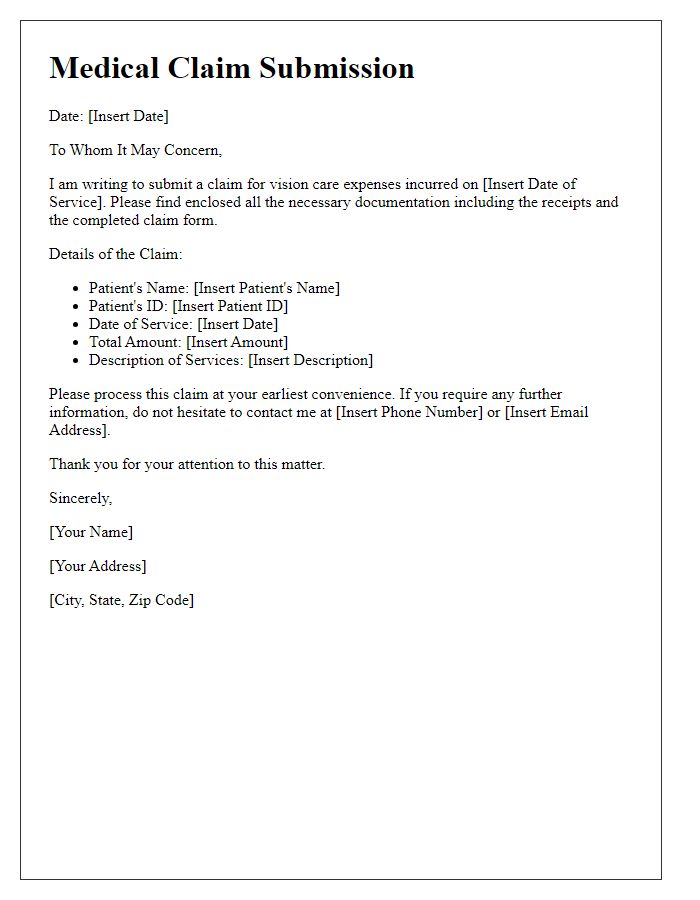
Letter template of medical claim form submission for rehabilitation services.
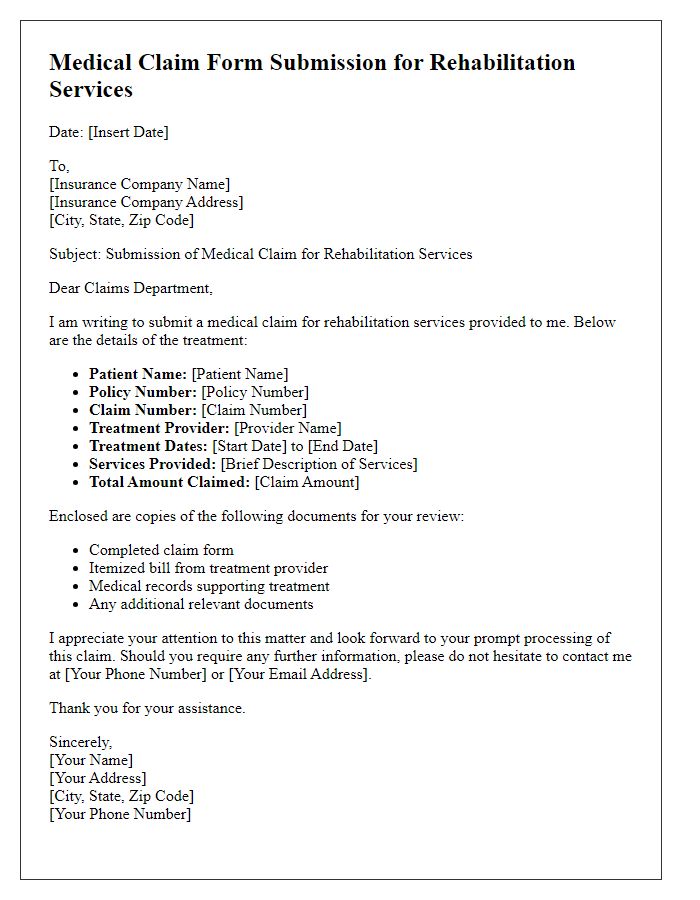
Letter template of medical claim form submission for mental health treatment.
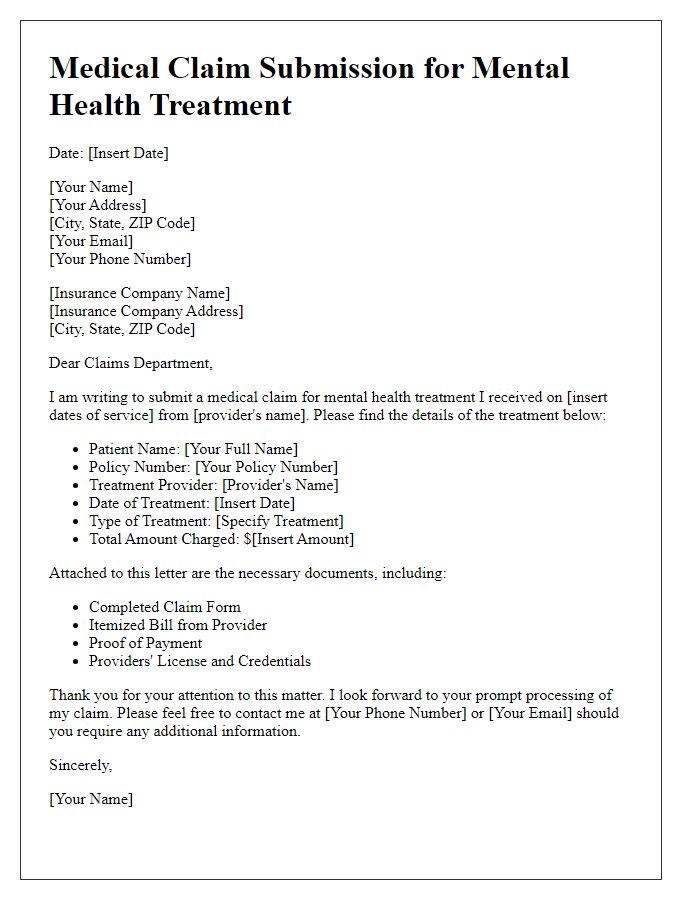

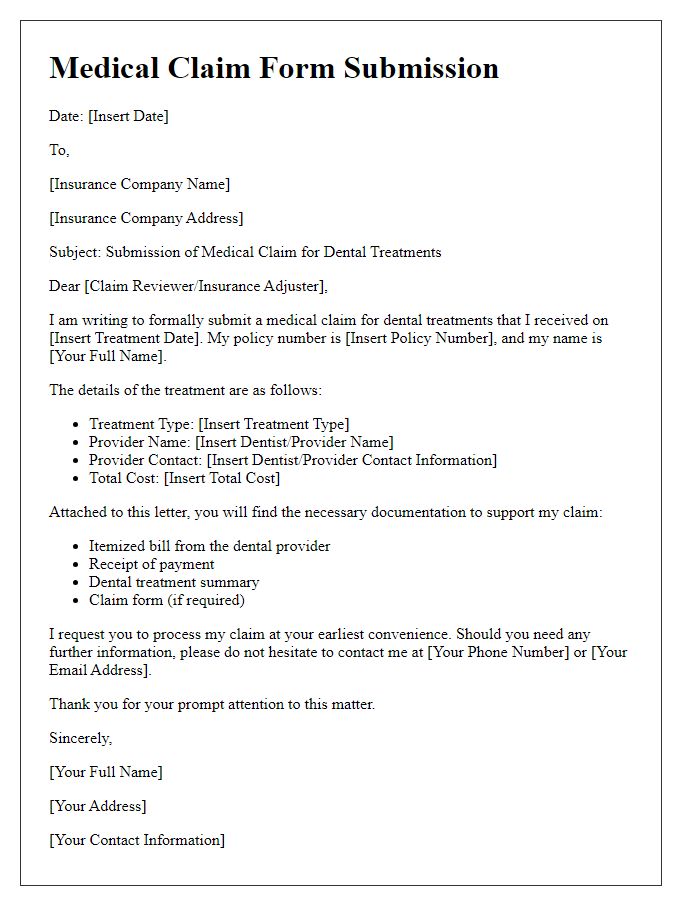
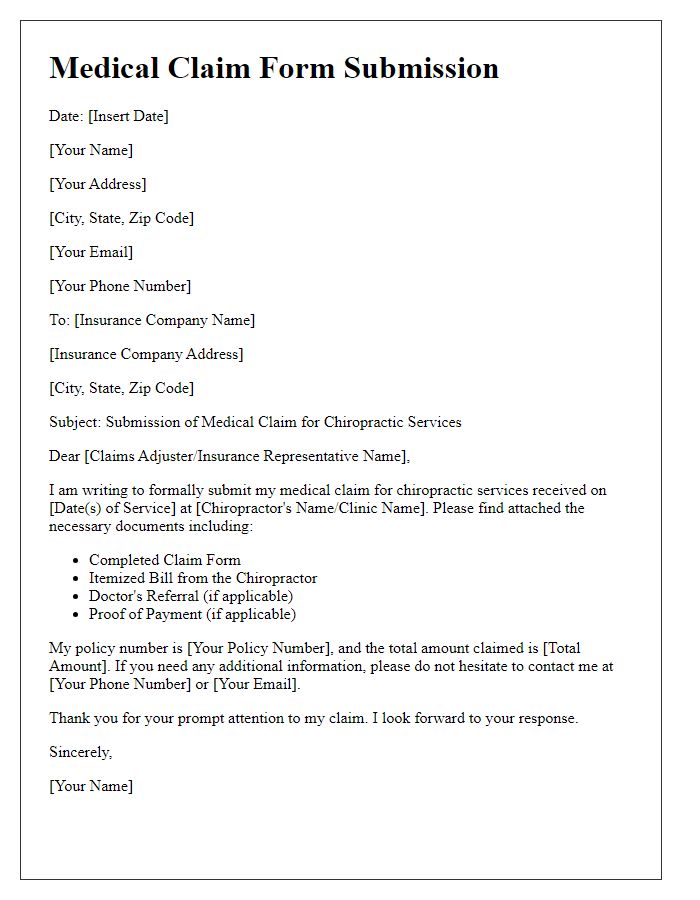


Comments